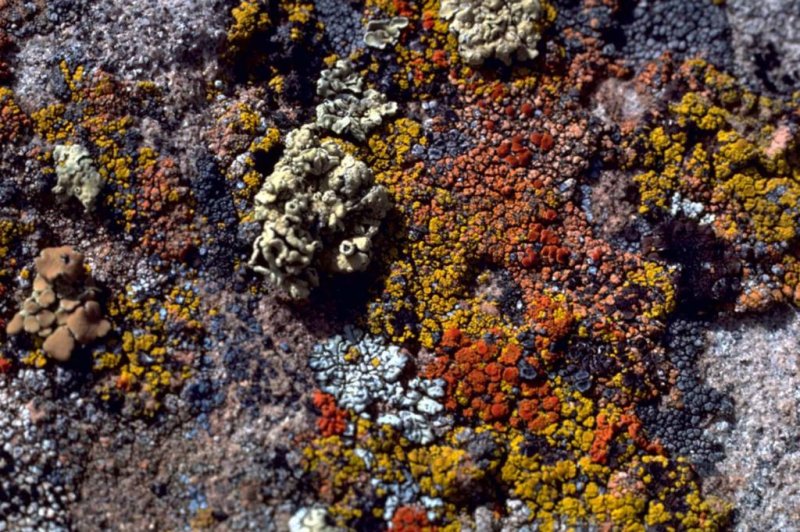Lichens aren't older than plants, new research suggests. Photo by
Pixnio/CC
Nov. 15 (UPI) -- Long thought to be some of the first living organisms to colonize land, new research suggests lichens aren't nearly as old as scientists thought.
Lichens are composite organisms formed by symbiotic relationships between algae or cyanobacteria and different fungi species. Because they can grow on rocks, scientists originally hypothesized that lichens were some of the first life forms to make the transition from sea to shore, paving the way for modern plants.
New genetic analysis suggests lichens actually evolved millions of years after plants. Scientists published the results of their DNA analysis this week in the journal Geobiology.
"When we look at modern ecosystems, and we see a bare surface like a rock, oftentimes lichens are the first thing to grow there, and eventually you'll get plants growing on there too," lead study author Matthew Nelsen, a research scientist at the Field Museum in Chicago, said in a news release. "People have thought that maybe that's the way ancient colonization of land worked, but we're seeing that these lichens actually came later in the game than plants."
Given the ability of lichens to live on uninviting surfaces in seemingly barren landscapes, it would make sense that these hardy organisms would be the first to transition to life on land.
Early Earth was a harsh place. Lichens also break up rocks, creating sediment, or dirt, in which plants can set down roots -- so it would also make sense that lichens preceded plants, researchers say.
But in studying the evolutionary history of the algae-fungus relationship, Nelsen found evidence contradicting the story of lichens as primordial pioneer.
"The question of when lichens evolved and how many times fungi evolved the ability to form symbiotic relationships with algae has been a bit contentious in the past," Nelsen said.
Ancient lichen fossils are very hard to identify, complicating efforts to confirm the organism's earliest evolutionary history. For the study, scientists used what they know about lichen-forming fungi and algae from more recent fossils to extrapolate the age of their family trees. Their findings suggest lichens emerged after complex plants.
"Lichens aren't as old as we thought they were," Nelson said. "They're a younger, newer sort of symbiosis and haven't been around forever, covering the earth long before there were plants and animals running around."
Lichens may have been some of the first organisms to colonize rocks and other unforgiving landscapes, and they also may have helped plants establish themselves in previously uninviting places, but according to the new research, they likely weren't around before plants.















